Research
Book: How to Design a Revolution
From Lars Müller Publishers:

"A bold vision of change was unfolding in Latin America at the beginning of the 1970s. After a democratic victory in Chile, the socialist government led by Salvador Allende and his governing coalition, Unidad Popular, had embarked on a mission to address the most pressing needs of the Chilean people. The result was a unique experience in politics and design. When the Chilean people voted at the polls for socialist change, they created the conditions for Chile to become the first country to unite socialism and democracy in the field of design.
This book provides the most complete analysis of the graphic and industrial design projects developed during the period of Salvador Allende's government. From a plastic measuring spoon conceived to combat child malnutrition, to posters distributed nationwide to encourage political action, to a state-of-the-art operations room built to manage Chile’s state-run industries, the book’s twelve chapters tell some of the most remarkable histories of this innovative design experience and show how those in the past used design to create a path to social and material justice. Fifty years after the civil-military coup d’état that put an end to democracy in Chile, and with it these design initiatives, the book provides a reminder of Latin America's transformative capacity and a source for reflection and creative inspiration."
How to Design a Revolution is available for sale at Lars Müller Publishers. A Spanish translation is also available.
Book: Beyond Imported Magic
*2016 Amsterdamska Award from the European Society for the Study of Science and Technology (EASST)
From MIT Press:
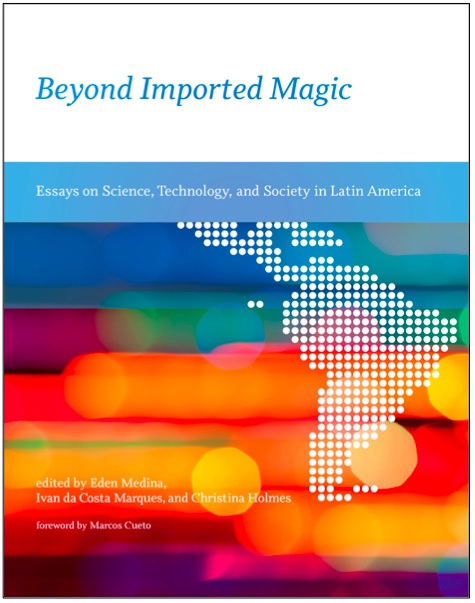 "The essays in this volume study the creation, adaptation, and use of science and technology in Latin America...[and] describe not only alternate pathways for innovation, invention, and discovery but also how ideas and technologies circulate in Latin American contexts and transnationally. The contributors' explorations of these issues, and their examination of specific Latin American experiences with science and technology, offer a broader, more nuanced understanding of how science, technology, politics, and power interact in the past and present."
"The essays in this volume study the creation, adaptation, and use of science and technology in Latin America...[and] describe not only alternate pathways for innovation, invention, and discovery but also how ideas and technologies circulate in Latin American contexts and transnationally. The contributors' explorations of these issues, and their examination of specific Latin American experiences with science and technology, offer a broader, more nuanced understanding of how science, technology, politics, and power interact in the past and present."
This co-edited volume was linked to an NSF-funded workshop of the same name that took place on the Indiana University campus in August 2012.
Beyond Imported Magic: Essays on Science, Technology, and Society in Latin America is available for order at MIT Press. All chapters are available on Project MUSE.
Book: Cybernetic Revolutionaries
*2012 Edelstein Prize for outstanding book in the history of technology
*2012 Computer History Museum Prize for outstanding book in the history of computing
*2014 Book Prize of the Recent History and Memory Section of the Latin American Studies Association (Honorable Mention)
From MIT Press:
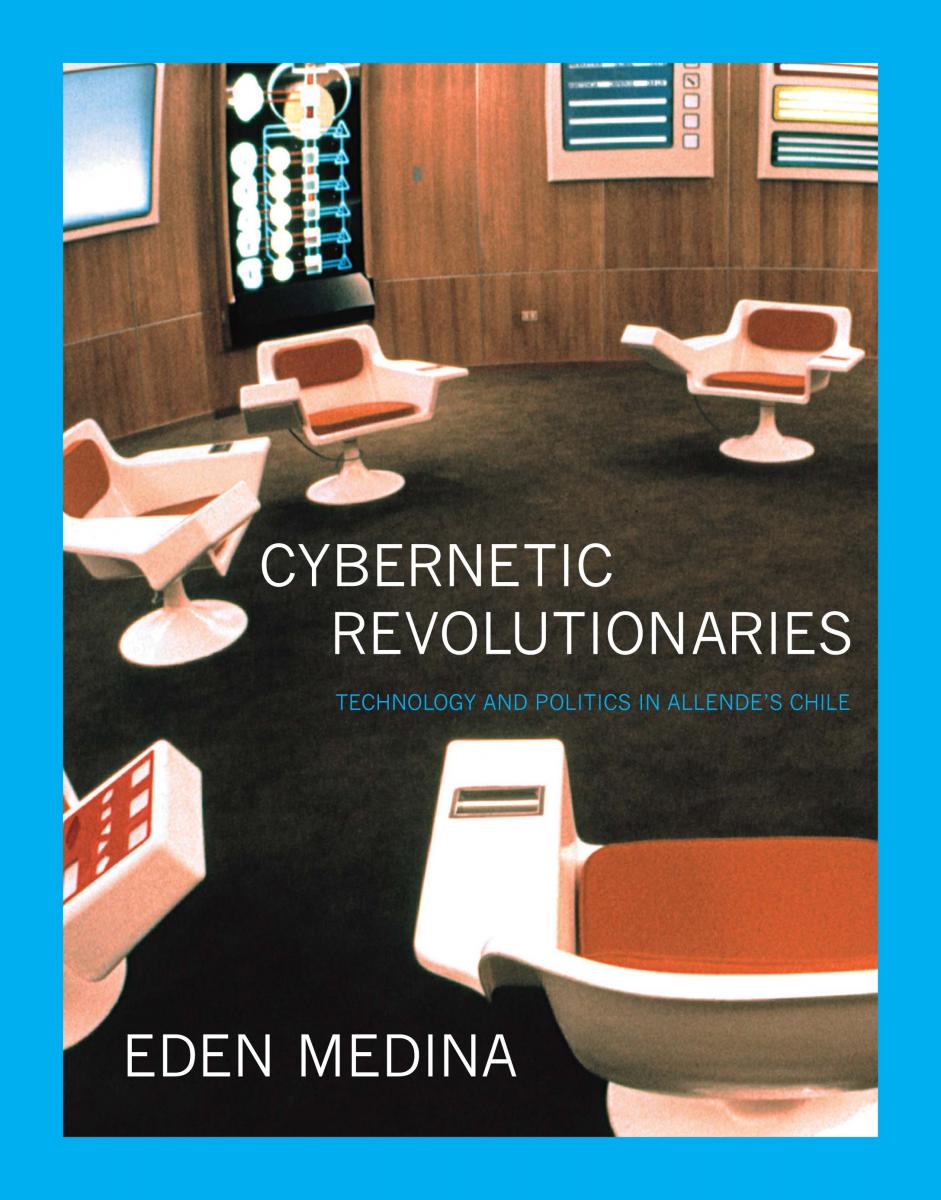 "In Cybernetic Revolutionaries, Eden Medina tells the history of two intersecting utopian visions, one political and one technological. The first was Chile's experiment with peaceful socialist change under Salvador Allende; the second was the simultaneous attempt to build a computer system managing Chile's economy. Neither vision was fully realized--Allende's government ended with a violent military coup; the system, known as Project Cybersyn, was never completely implemented--but they hold lessons for today about the relationship between technology and politics. Medina, drawing on extensive archival material and interviews, examines the cybernetic system envisioned by the Chilean government--which was to feature holistic system design, decentralized management, human-computer interaction, a national telex network, real-time control of the growing industrial sector, and modeling the behavior of dynamic systems. She also describes, and documents withphotographs, the network's Star Trek-like operations room, which featured swivel chairs with armrest control panels, a wall of screens displaying data, and flashing red lights to indicate economic emergencies. Studying project Cybersyn today helps us understand not only the technological ambitions of a government in the midst of political change but also the limitations of the Chilean revolution. At the same time, human attempts to combine the political and the technological with the goal of creating a more just society can open new possibilities, technological, intellectual, political, and otherwise. Technologies, Medina writes, are historical texts; when we read them we are reading history."
"In Cybernetic Revolutionaries, Eden Medina tells the history of two intersecting utopian visions, one political and one technological. The first was Chile's experiment with peaceful socialist change under Salvador Allende; the second was the simultaneous attempt to build a computer system managing Chile's economy. Neither vision was fully realized--Allende's government ended with a violent military coup; the system, known as Project Cybersyn, was never completely implemented--but they hold lessons for today about the relationship between technology and politics. Medina, drawing on extensive archival material and interviews, examines the cybernetic system envisioned by the Chilean government--which was to feature holistic system design, decentralized management, human-computer interaction, a national telex network, real-time control of the growing industrial sector, and modeling the behavior of dynamic systems. She also describes, and documents withphotographs, the network's Star Trek-like operations room, which featured swivel chairs with armrest control panels, a wall of screens displaying data, and flashing red lights to indicate economic emergencies. Studying project Cybersyn today helps us understand not only the technological ambitions of a government in the midst of political change but also the limitations of the Chilean revolution. At the same time, human attempts to combine the political and the technological with the goal of creating a more just society can open new possibilities, technological, intellectual, political, and otherwise. Technologies, Medina writes, are historical texts; when we read them we are reading history."
Cybernetic Revolutionaries: Technology and Politics in Allende's Chile is available for order at MIT Press. The Spanish translation is available from LOM Ediciones. Translations of the book are also available in Chinese, Polish, and Japanese. It will soon be available in Korean. Read reviews of the book.
Current Projects
Exhibition: How to Design a Revolution
I co-curated the exhibition "Cómo diseñar una revolución: la vía chilena al diseño" (How to Design a Revolution: the Chilean Road to Design) with Hugo Palmarola and Pedro Ignacio Alonso. The exhibition opened on September 7, 2023 and is part of the series of commemorative events tied to the fiftieth anniversary of the military coup. The exhibition closed on January 28, 2024.
The more than 350-piece exhibition engages audiences with the history of industrial and graphic design during the government of President Salvador Allende. The exhibition includes the first full-scale, working reconstruction of the Cybersyn operations room. See press coverage from CNN, El País, MIT, Radio BioBio, Los Angeles Times, ArchDaily, La Tercera, and Las Ultimas Noticias.
Work on the exhibition and related book has been supported by Centro Cultural La Moneda; Pontifica Universidad Católica de Chile; MIT School for Humanities, Arts and Social Sciences (SHASS); MIT International Science and Technology Initiatives (MISTI); MIT Program in Science, Technology and Society; Ministry of Science, Technology, Knowledge and Innovation of Chile; Ministry of Culture, Art and Heritage of Chile; and Goethe–Institut Chile.
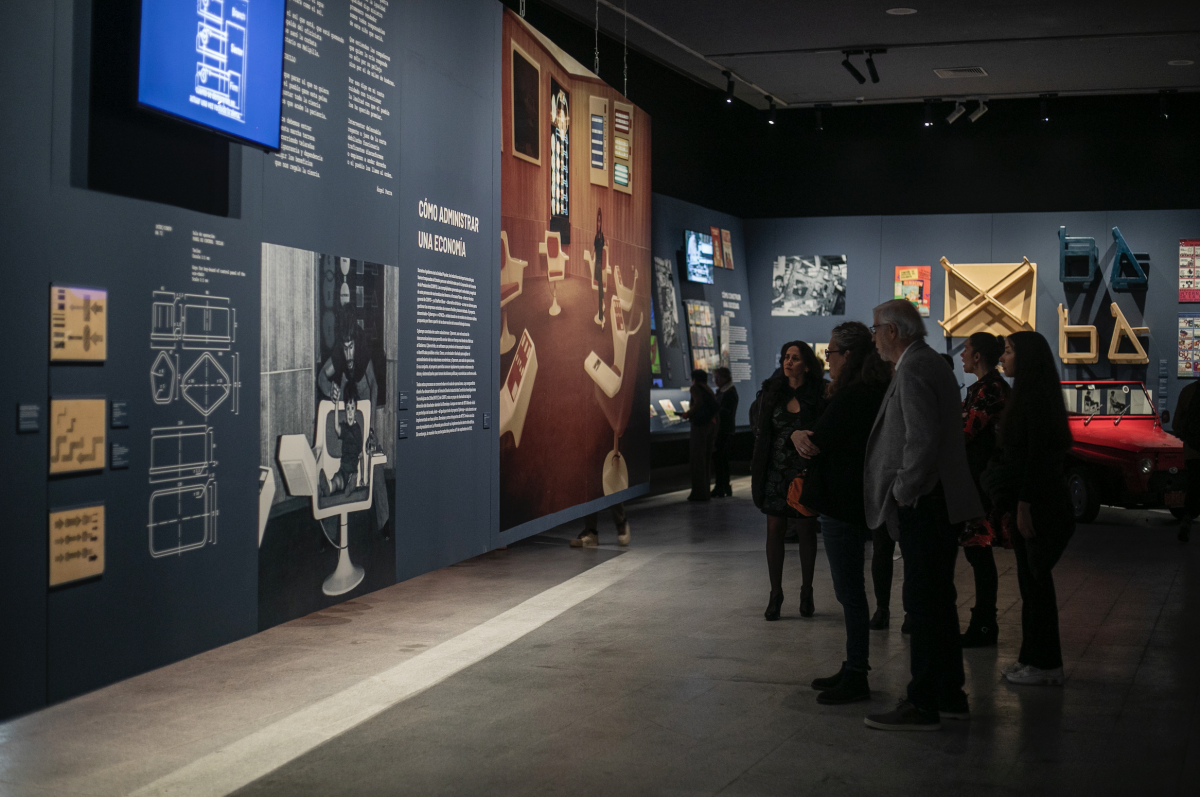
Science, Technology, Human Rights
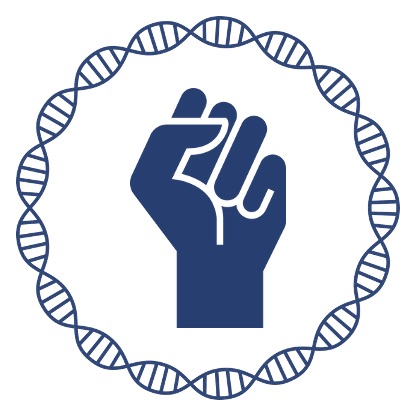 Research for my current book manuscript, Bones and Lives: Making and Unmaking Truth After Dictatorship, studies the history of how science and technology have shaped the pursuit of truth and justice in the aftermath of the human rights crimes committed by the Pinochet dictatorship in Chile. By studying efforts to locate, exhume, and identify the remains of the disappeared and executed, I show how science and technology can become mobilized by different stakeholders to address national traumas of the past and how these efforts can lead to outcomes other than those desired, including new ways for the past to haunt the present. Research for the manuscript has been supported by the National Science Foundation (Scholar's Award, SES–1457099), the Mellon Foundation in the form of a New Directions Grant (which supported a year of graduate study at Yale Law School), the Radcliffe Institute for Advanced Study at Harvard University in the form of a Radcliffe Fellowship, Indiana University, and the MIT Program in Science and Technology in Society. The book is under advance contract with Duke University Press.
Research for my current book manuscript, Bones and Lives: Making and Unmaking Truth After Dictatorship, studies the history of how science and technology have shaped the pursuit of truth and justice in the aftermath of the human rights crimes committed by the Pinochet dictatorship in Chile. By studying efforts to locate, exhume, and identify the remains of the disappeared and executed, I show how science and technology can become mobilized by different stakeholders to address national traumas of the past and how these efforts can lead to outcomes other than those desired, including new ways for the past to haunt the present. Research for the manuscript has been supported by the National Science Foundation (Scholar's Award, SES–1457099), the Mellon Foundation in the form of a New Directions Grant (which supported a year of graduate study at Yale Law School), the Radcliffe Institute for Advanced Study at Harvard University in the form of a Radcliffe Fellowship, Indiana University, and the MIT Program in Science and Technology in Society. The book is under advance contract with Duke University Press.
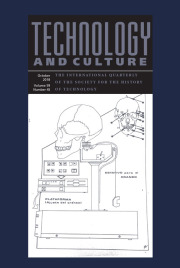 Early research from this project has appeared in Eden Medina, "Forensic Identification in the Aftermath of Human Rights Crimes in Chile: A Decentered Computer History," Technology and Culture 59 (4 Supplement)(2018): S100-S133 and Eden Medina and Ilan Sandberg Wiener, "Science and Harm in Human Rights Cases: Preventing the Revictimization of Families of the Disappeared," Yale Law Journal Forum, 125 (2016): 331-342.
Early research from this project has appeared in Eden Medina, "Forensic Identification in the Aftermath of Human Rights Crimes in Chile: A Decentered Computer History," Technology and Culture 59 (4 Supplement)(2018): S100-S133 and Eden Medina and Ilan Sandberg Wiener, "Science and Harm in Human Rights Cases: Preventing the Revictimization of Families of the Disappeared," Yale Law Journal Forum, 125 (2016): 331-342.
Additionally, I teach the doctoral seminar STS.458 Science, Technology, and Human Rights. The course explores the relations of science and technology to ideas about human rights over time, incluing how science and technology have been mobilized historically in defense of human rights and how human rights frameworks have shaped the creation and use of scientific and technological capabilities. This seminar is tied to a Fall 2021 speaker series.
Other Active Projects
- I am collaborating with Hugo Palmarola and Pedro Alonso of the Pontificia Universidad Católica de Chile to create versions of the exhibition "How to Design a Revolution: The Chilean Road to Design" that will travel.
- I am Co-PI on an SSRC Scholarly Borderlands Project (with PI Andrea Ballestero, co-PI Kregg Hetherington, and co-PI Andrew Lakoff). The project consists of building an interdisciplinary working group on the topic "The Future of Facts in Latin America."
- With support from the MIT Alumni Class Fund, I am working with students to study and document the history of residential life in the MIT undergraduate dorm East Campus.
- Collaborating with PI Sarah Williams and the City of Boston on the MIT-funded project "Generative AI for Cities: A Civic Engagement Playbook."
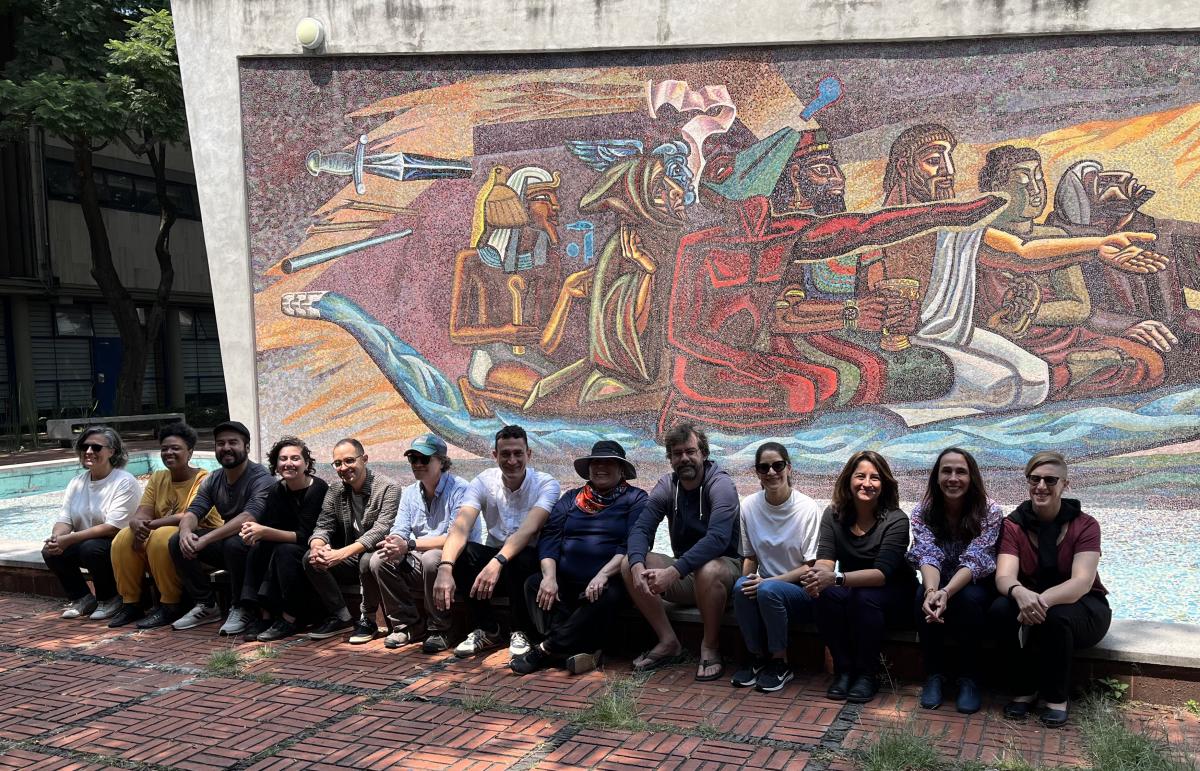
Previous Projects
The publications link contains a complete list of my previous projects. However, here is one of my favorites. I authored this short piece in 2017 on the history of the Citroën Yagán for Technosphere Magazine. The Yagán was a Chilean "automobile for the people" built during the socialist government of Salvador Allende. Here you can see a picture of my father-in-law in the driver's seat of the Yagán.
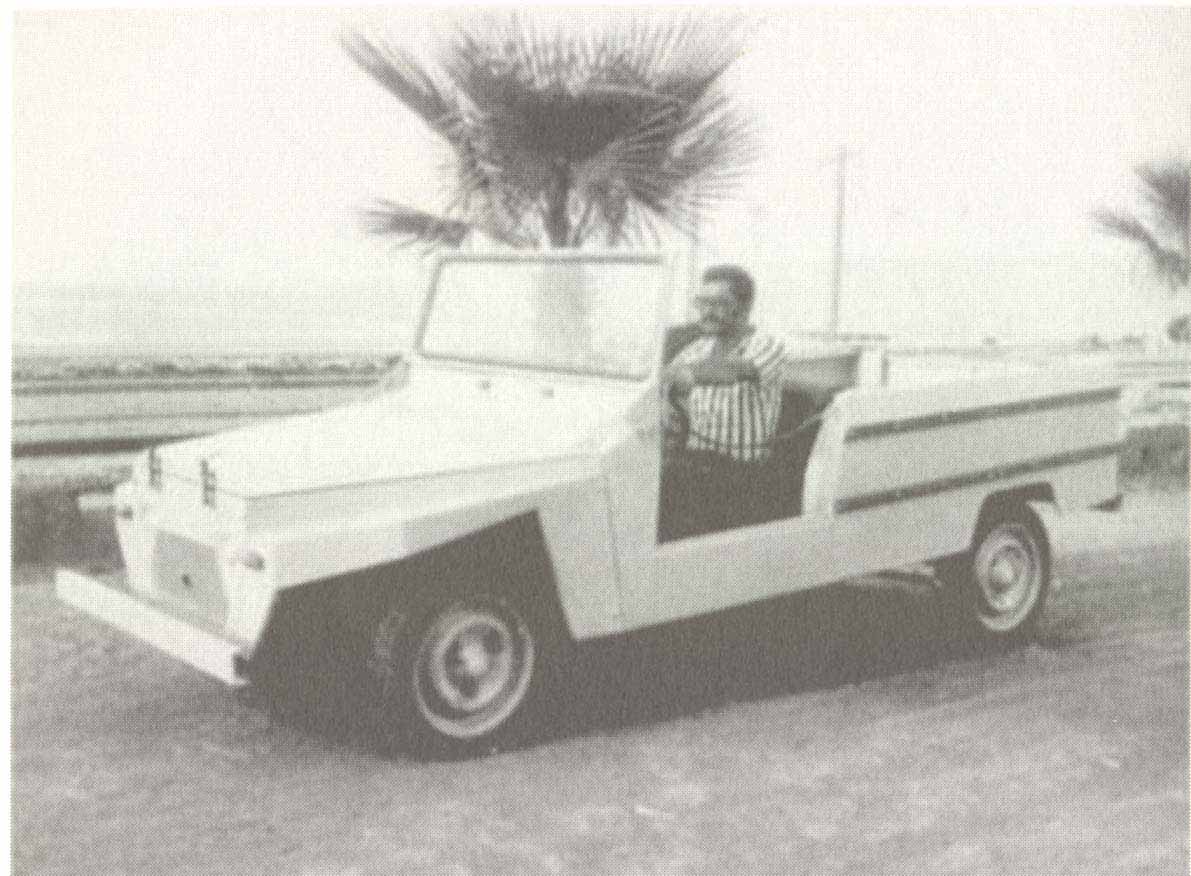
Talks
I like presenting my work publicly. Here is a keynote I delivered at the Strata+Hadoop World conference in San Jose, CA. You can also hear me talking about my work on the podcasts 99 Percent Invisible and New Books Network. You can learn about recent and upcoming talks on the News page.
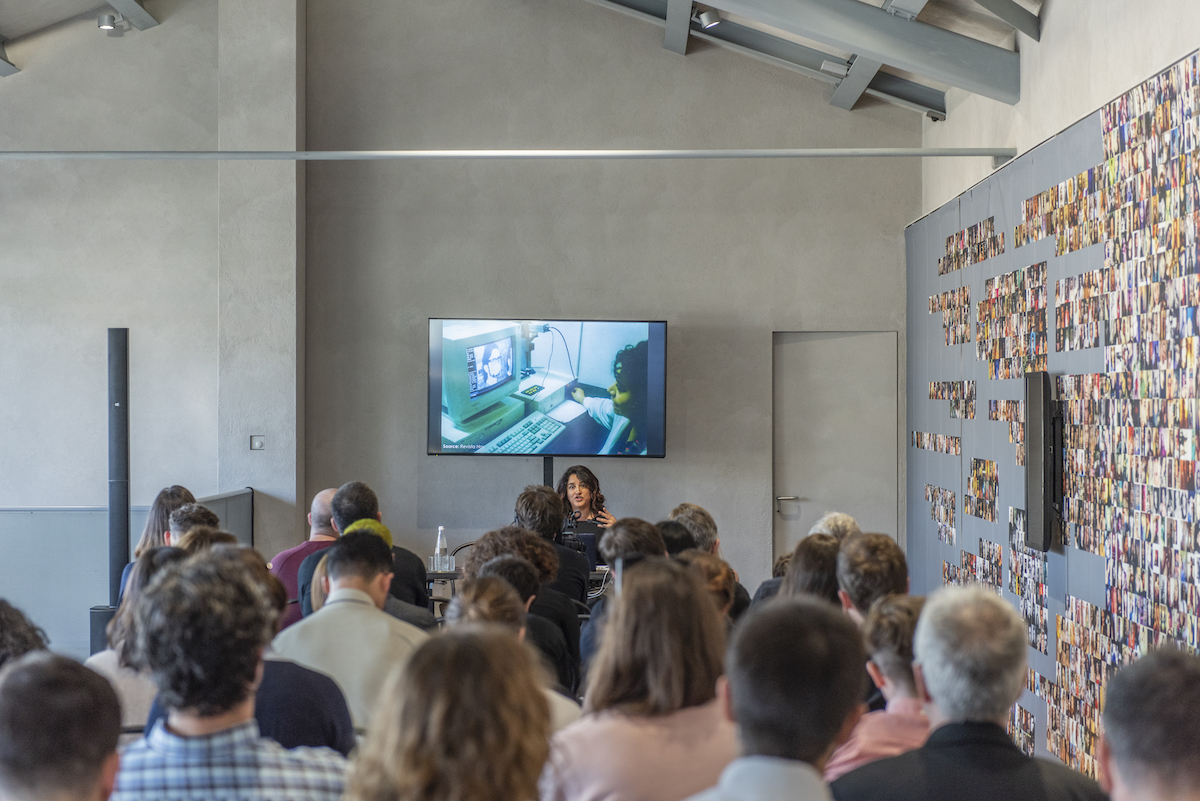
Students
I advise students who have demonstrated a serious interest in conducting research that intersects with my expertise. Students outside of the MIT HASTS program who wish to work with me should enroll in one of my classes. If you are interested in applying to the HASTS program to potentially work with me, keep in mind that HASTS admits students based on their overall fit for the program. HASTS students typically do not choose their advisor until they are in their second year. Prospective students do not need to secure a potential advisor prior to applying to the program. They are strongly encouraged, however, to think about how the HASTS program as a whole will help them pursue their intellectual and professional goals.
Ph.D. Graduates (Advisor)
David Nemer, Ph.D. Informatics and Computing, Indiana University, 2015
Dissertation Title: "Rethinking Digital Inequalities: The Experience of the Marginalized in Community Technology Centers"
Current Position: Assistant Professor, Media Studies, University of Virginia
Dongoh Park, Ph.D. Informatics and Computing, Indiana University, 2016
Dissertation Title: "Digital Nation Building: Sociotechnical Development of Public-key Infrastructure in Korea"
Current Position: Senior Policy Specialist, Google
Paula Mate, Informatics, Indiana University, 2020
Dissertation Title: "Examining the Implementation of a Health Information System in Mozambique"
Christopher Miles, Informatics and Communication and Culture, Indiana University (2021)
Dissertation Title: "Data Farm: Precision Agriculture and the Government of Nature"
Current Position: Postdoctoral Associate, College of Agriculture and Life Sciences, Cornell University
Danial Qaurooni, Informatics and Cognitive Science, Indiana University (2022 expected)
Dissertation Title: "Walled Gardens: Plant Factories and the Computerization of Growth"
Current position: Postdoctoral Associate, Department of Library and Information Science, Indiana University, Bloomington
Current Ph.D. Students (Advisor)
Mariel García-Montes, HASTS, MIT (doctoral candidate)
Dissertation Title: “Birds on the Wire: The Sociotechnical Dimensions of Surveillance Culture in Mexico”